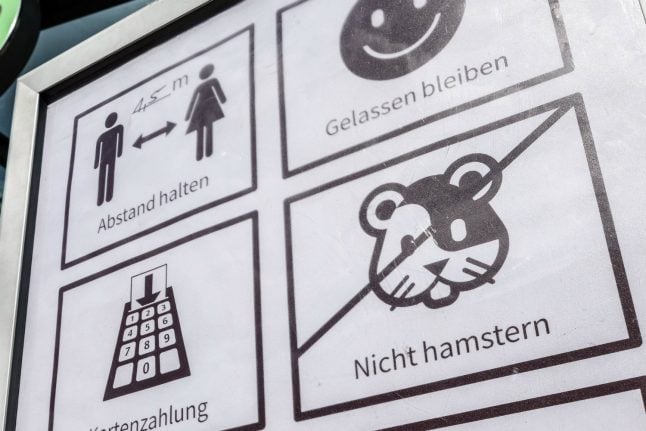A report by the Federal Statistical Office (Destatis) shows that sales figures for toilet paper in Germany in the week of October 12th to 17th were almost twice as high (+89.9 percent) as the average for the pre-crisis months of August 2019 to January 2020.
Sales of disinfectants during this week were almost three quarters (+72.5 percent) above the pre-crisis average and sales of soap were almost two thirds (+62.3 percent) higher than the the pre-crisis average.
READ ALSO: Toilet paper disappears from German supermarket shelves as panic buying returns
Demand for disinfectants and soap remained slightly above average even during the summer, when food sales had largely returned to normal.
In the 42nd calendar week (October 12th-17th), demand for certain food products also picked up. Compared to the pre-crisis average, sales of flour rose by more than a quarter (+28.4 percent) and yeast by more than a third (+34.8 percent). However, sales of pasta such as noodles were slightly below average (-0.2 percent).
Politicians and trade associations have said the supply situation of daily consumer goods is secure and have urged the population to refrain from “hoarding”.
Der Hamsterkauf is the German word used to describe the panic buying or hoarding that occurs during times of widespread fear or concern.
READ ALSO: German word of the day: Der Hamsterkauf
It comes from the verb hamstern, which means “to hoard or panic buy” since hamsters are known for filling their cheeks with food.
At the beginning of the pandemic, empty supermarket shelves were a common sight in Germany as shops sold out of products like toilet roll, soap, tinned tomatoes, pasta and flour.
Vocabulary
Toilet paper – (das) Toilettenpapier
Disinfectant – (das) Desinfektionsmittel
Toiletries/hygiene products – (die) Hygieneartikeln
We're aiming to help our readers improve their German by translating vocabulary from some of our news stories. Did you find this article useful? Let us know.



 Please whitelist us to continue reading.
Please whitelist us to continue reading.
Member comments